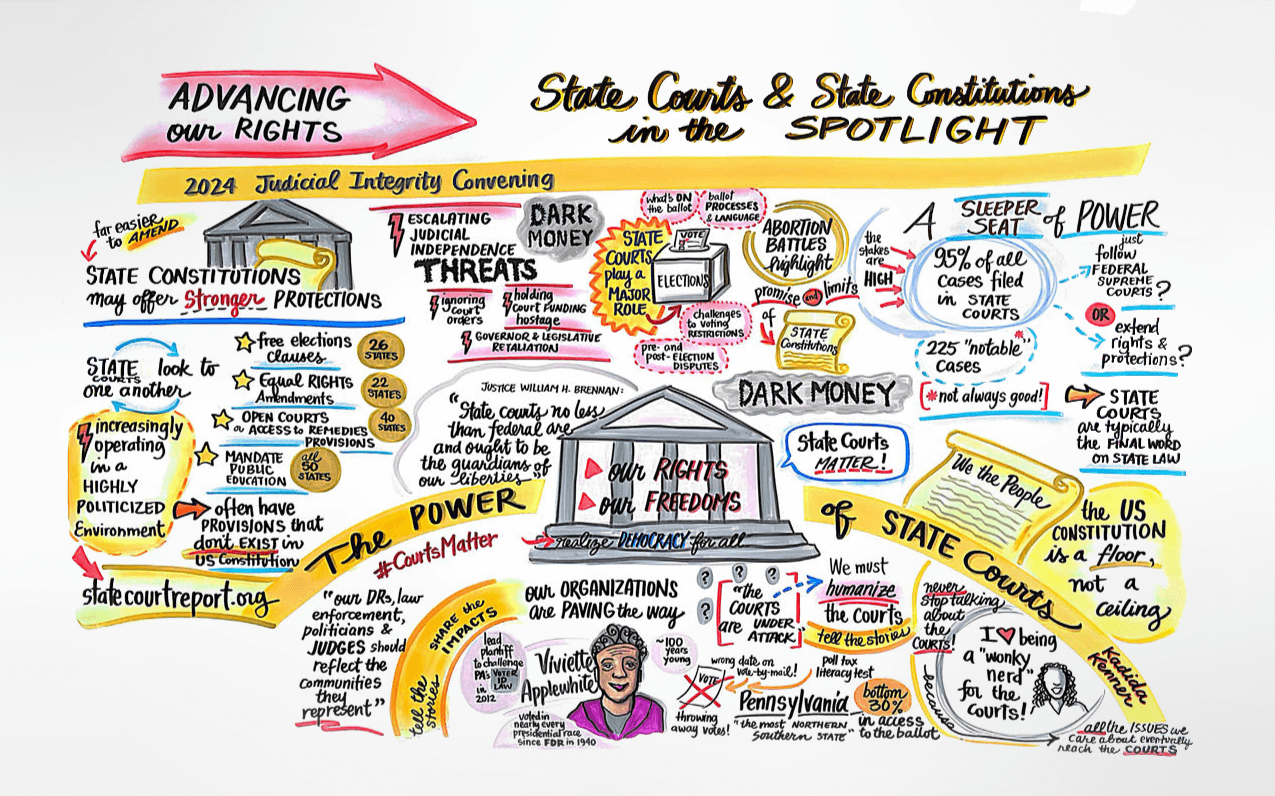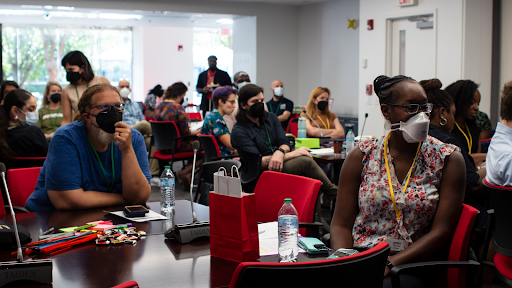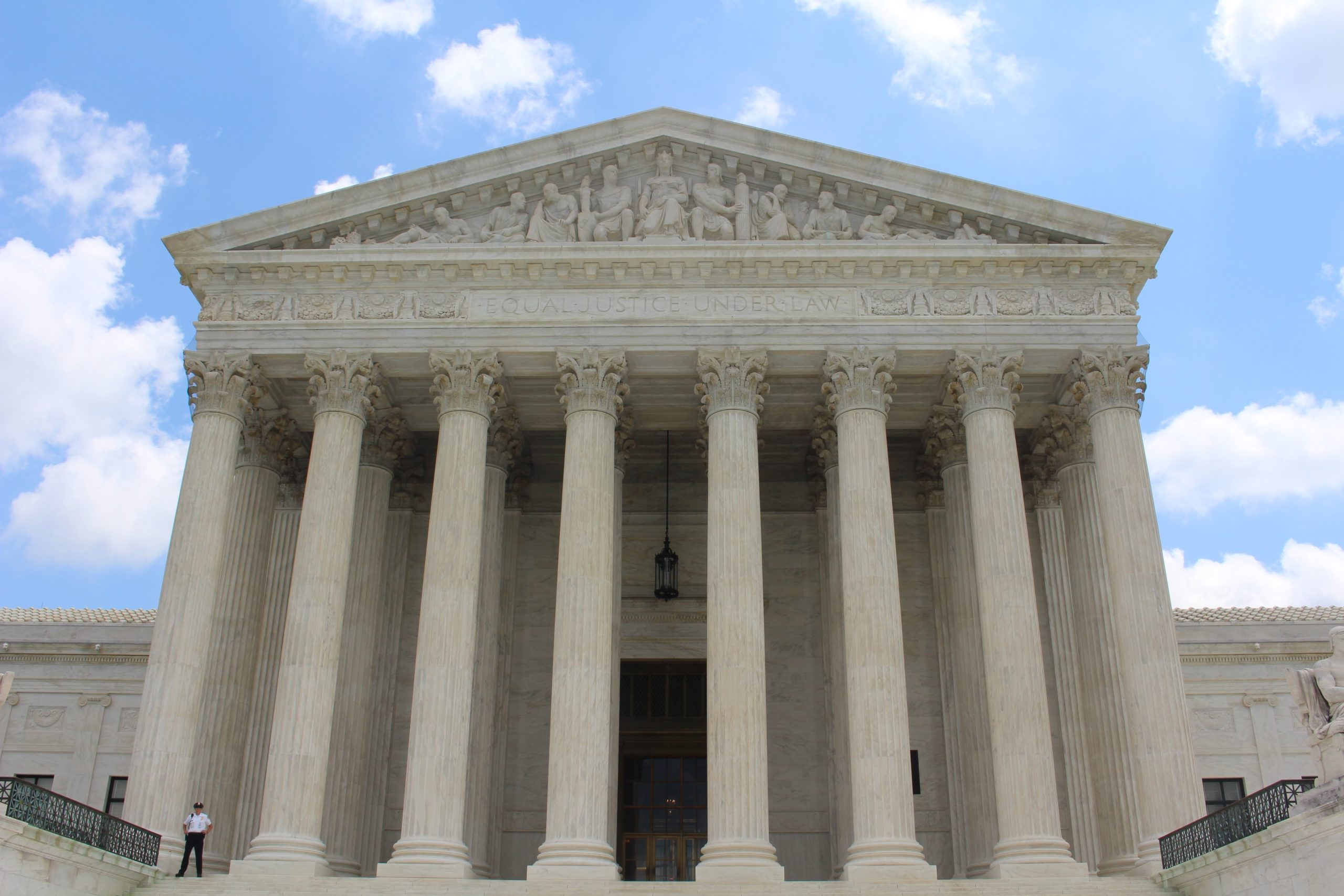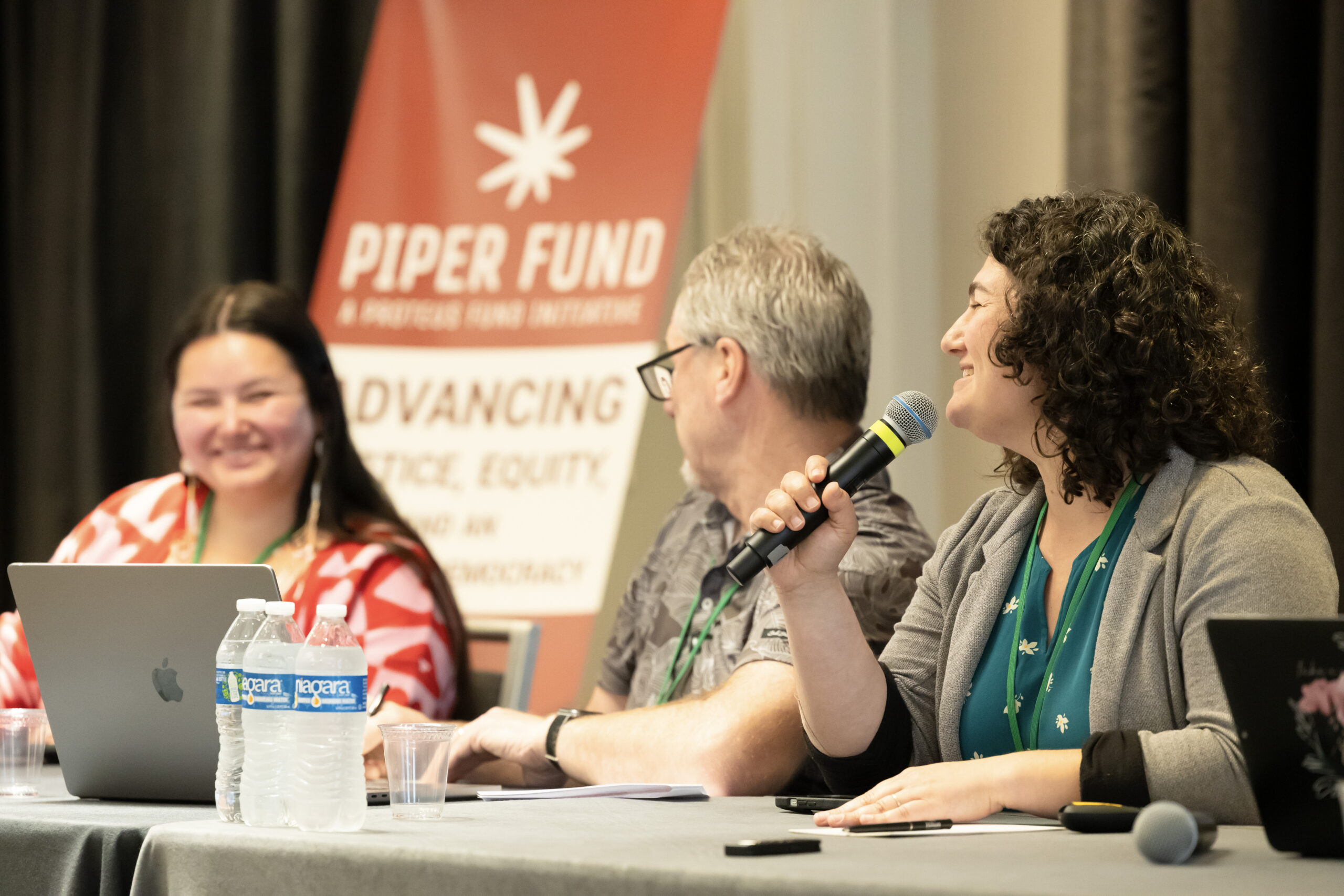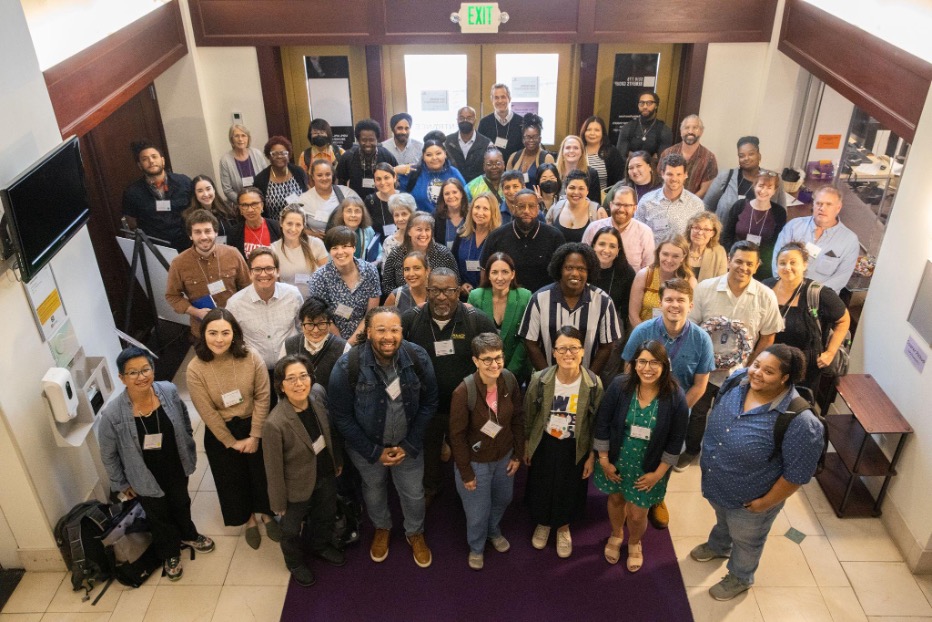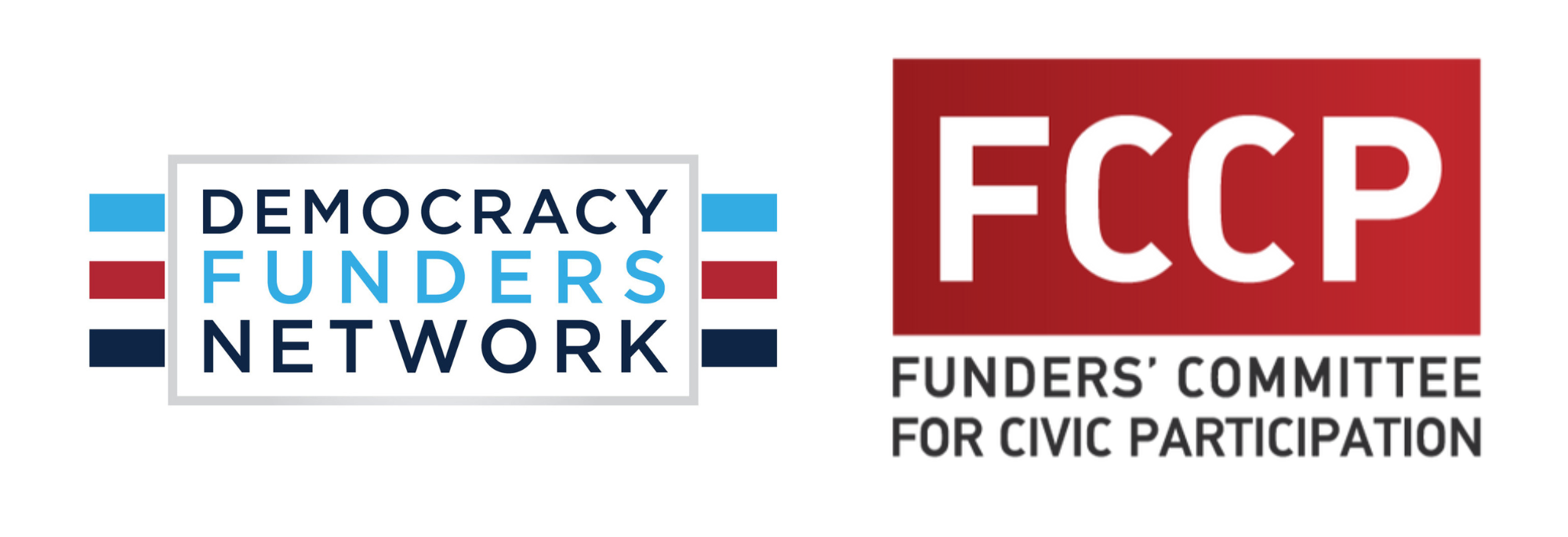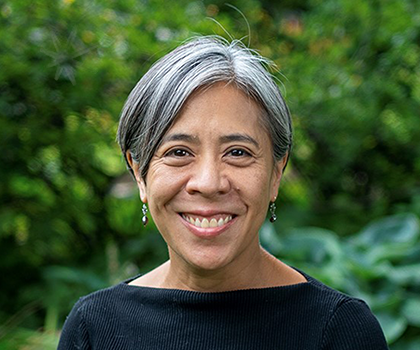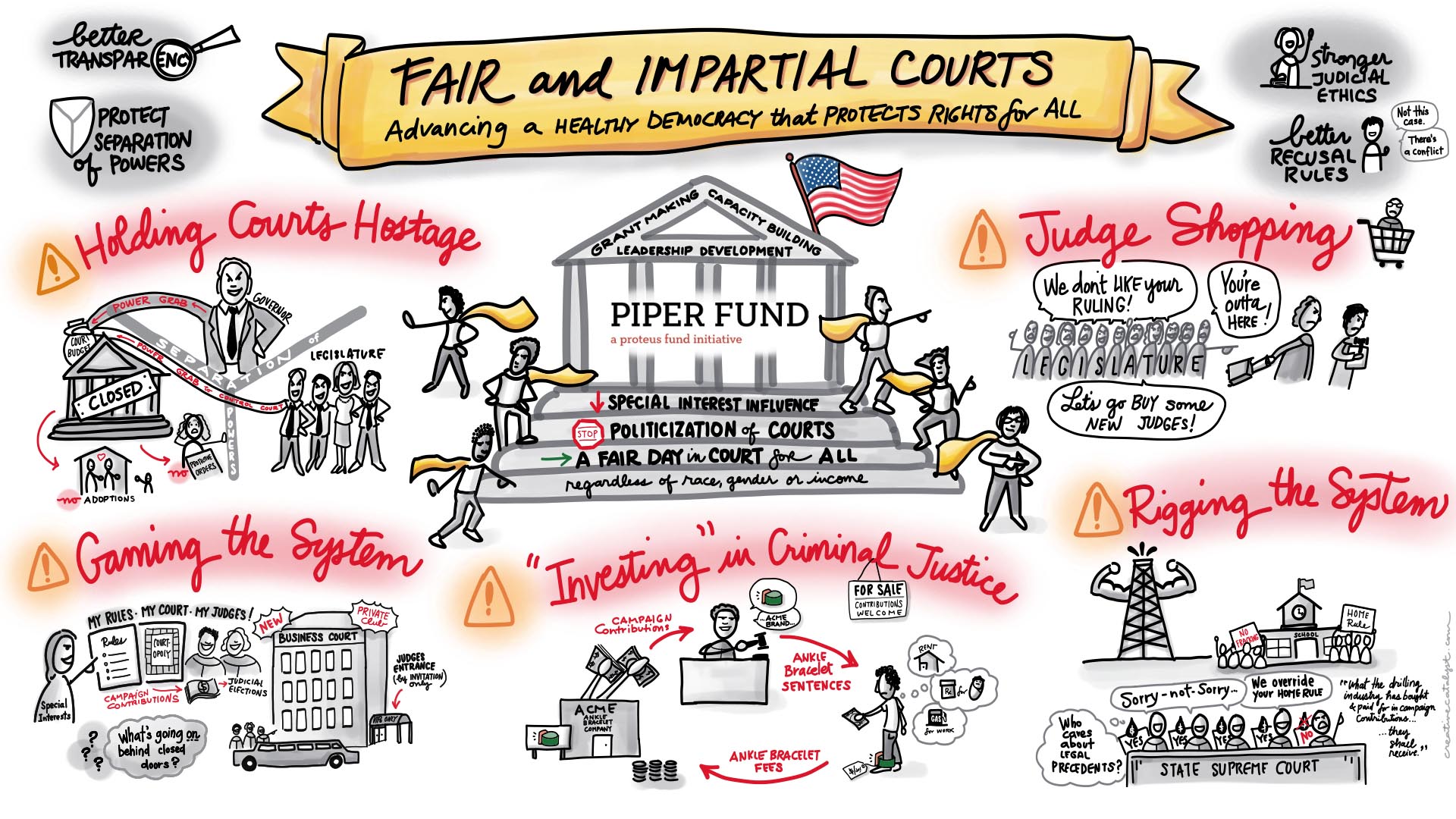As democracy in the United States continues to face rising and, in some cases, unprecedented threats, the public is becoming increasingly active in defending democratic norms and institutions. With the realization that a set of powerful special interests are seeking to undermine democracy, more and more communities are demanding structural democratic reforms and, flowing from that, a reflective and truly representative democracy that ensures protection and advancement of all individuals’ human and civil rights.
To achieve a healthy democracy that works for all, the Piper Fund is supporting the field to catalyze and shape three major trends that are encouraging this expanded public engagement:
Groups are working collaboratively across multiple advocacy areas
More and more, the social justice field is beginning to understand that all of the issues that marginalized communities care about—from racial and economic justice to climate change and reproductive health and LGBTQ rights—depend on a healthy democracy. As a result, Piper grantees and other advocacy groups are crossing silos and approaching democracy reform from multiple angles, recognizing that the only way to win substantive change that will endure for the long term is to work collaboratively across issues.
Consider the following examples in Piper’s three program areas—judicial independence, right to protest, and money in politics reform:
It is also encouraging to see groups work across multiple democracy issues such as Arizona, which is pursuing both automatic voter registration and campaign finance reform. In Arizona, and in other states—such as Florida, Oregon, and Washington—broader “democracy hubs” are addressing a wide range of democracy issues in a more holistic way.
National infrastructure has been developed to support state and local efforts
As state and local groups work to defend and strengthen democracy, it is critical that they have a common infrastructure for sharing lessons learned and building skills, as well as receiving coordinated support from the national field. In each of our three program areas, the Piper Fund and Piper Action Fund have worked collaboratively with other national groups to build infrastructure to support state and local efforts.
The national Fair Courts Working Group brings together key judicial independence groups to track developments in the states, provide rapid response support as threats arise, and strategize about how best to build the field. Similarly, the national Money in Politics Working Group provides a forum to coordinate strategic and communications support for state and municipal reform campaigns and share information; the working group is planning to conduct research that will help determine which policies are the most effective in engaging underrepresented communities. And, through the Protect Dissent Network national organizations provide strategic, legal, and communications support to state groups working to protect freedom of assembly.
Fundamental to each of these tables is a commitment that state and local groups must direct their own priorities, strategies, and tactics because they are in the best position to efficiently engage with their local communities and advocate for reform on the ground. At the same time, this coordination of support is helping to build a stronger and more effective field.
There is an increasing interplay between state and federal work
While most of Piper’s work focuses on state and local structural reform campaigns, we—and our grantees—are increasingly working at the federal level as well, in response to both threats and opportunities.
For example, the increasing politicization of judicial selection and corruption of democratic norms at the state and federal levels has led Piper to play a bridging role to encourage strategic dialogue between state and federal judicial independence groups. Similarly, federal efforts to restrict protest in the nation’s capital go hand-in-hand with state anti-protest laws, and the groups in the Protect Dissent Network understand these connections and are approaching them as one and the same issue.
At the same time, democracy reform efforts—including campaign finance reform—are advancing at both levels, with federal and state reform efforts building on one another’s momentum. This spring, advocates around the country celebrated the US House’s passage of HR1, a sweeping proposal to enact a series of pro-democracy reforms. This milestone signaled a shift in the national discourse about how we can respond to the overwhelming influence of money in politics and raised the possibility of comprehensive federal reform. The campaign for HR1 drew inspiration from local reform efforts and is, in turn, helping to feed the momentum at the state and local levels.
It is clear that local and national organizing efforts both feed into and reinforce each other in a powerful loop. As more states pursue reform, national advocacy then becomes more viable, and vice versa.
These developments should give us great hope for the future of democracy reform. With many of these efforts operating on shoestring budgets, these trends also underscore the need for more significant investment in the groups on the ground leading this work. The Piper Fund welcomes dialogue with others in philanthropy as to how we can partner to help support these critical trends, to build a cohesive and impactful field that can protect and strengthen democracy in the United States.
Read more about our Judicial Independence, Money in Politics Reform, and Protecting the Right to Protest initiatives below.
